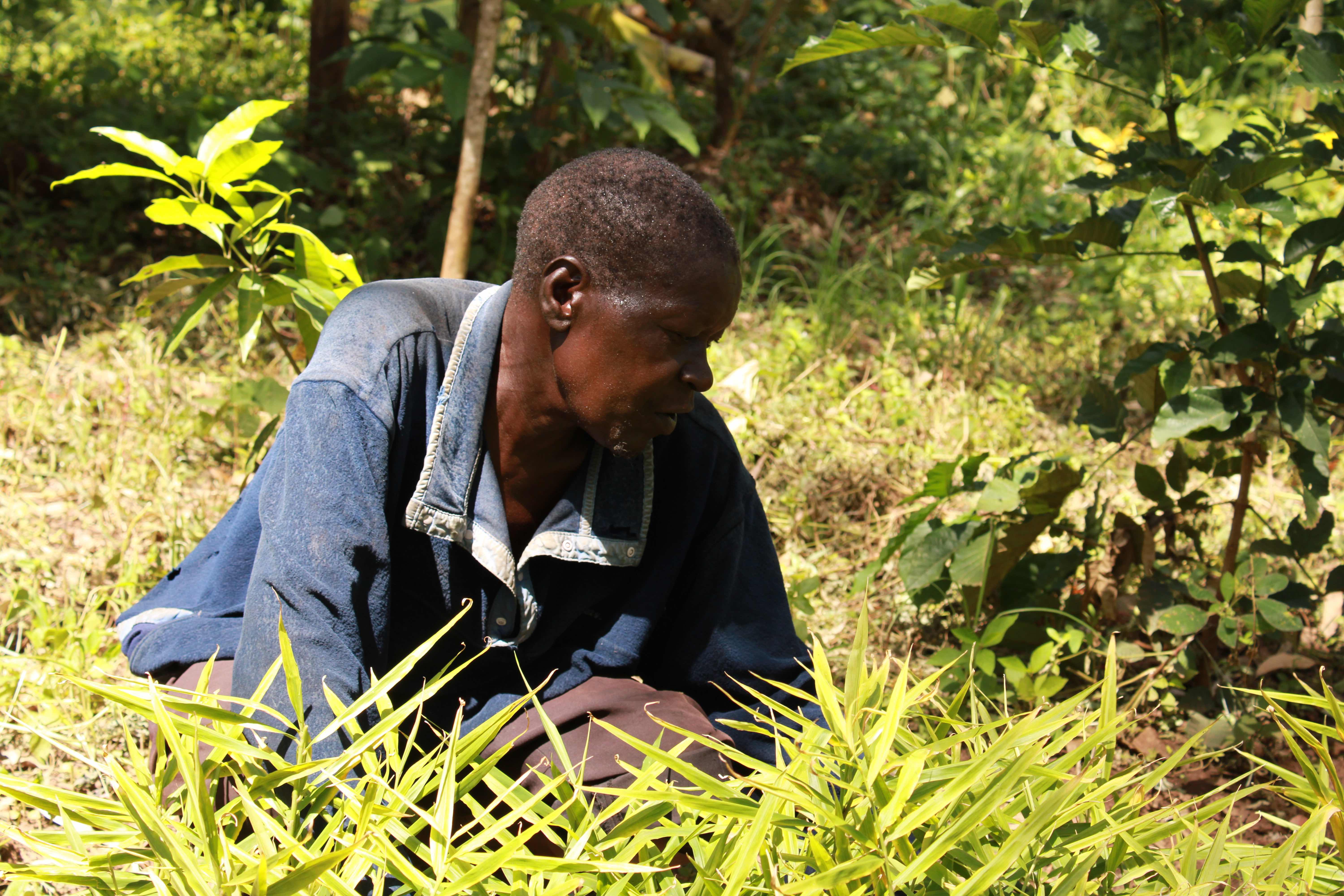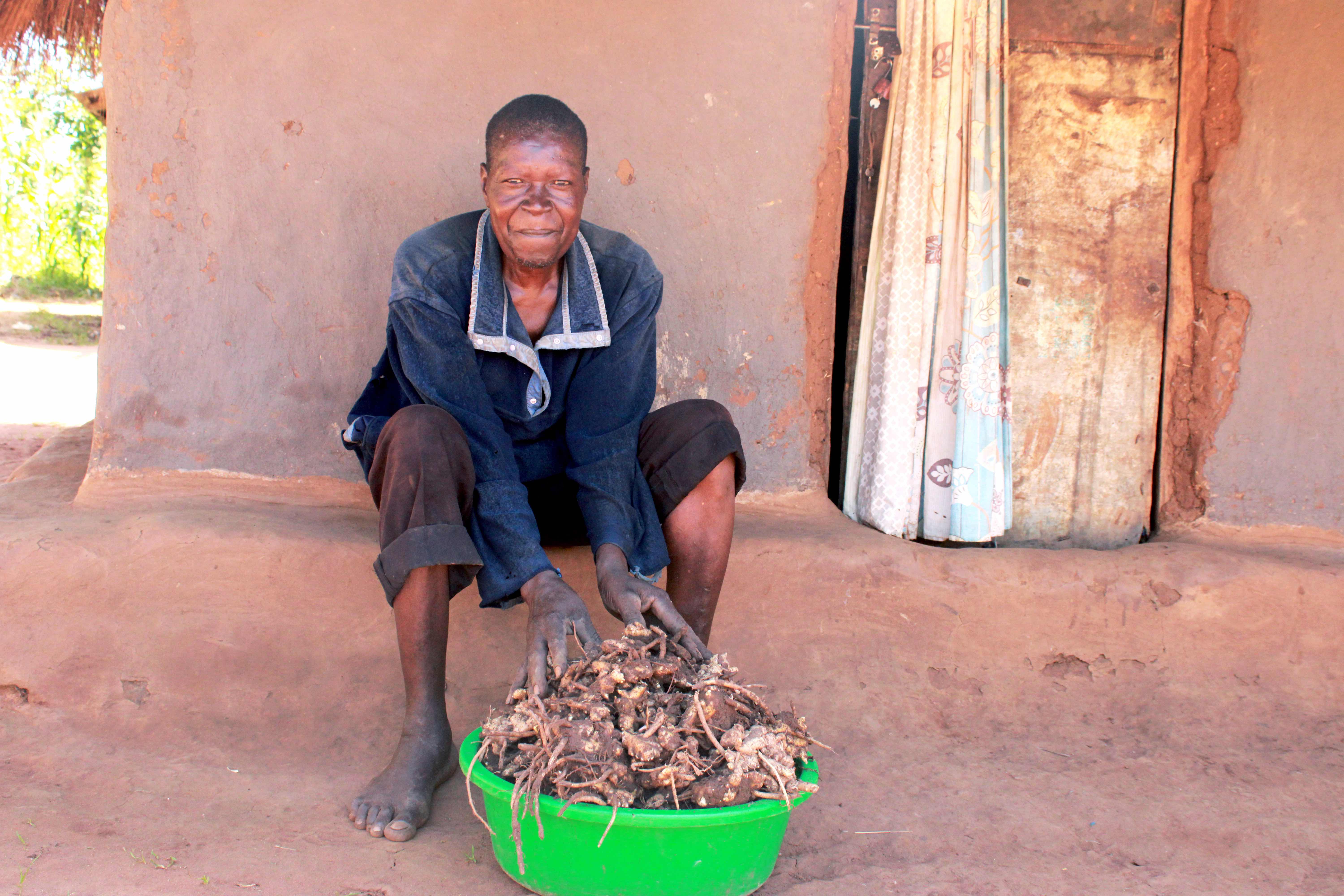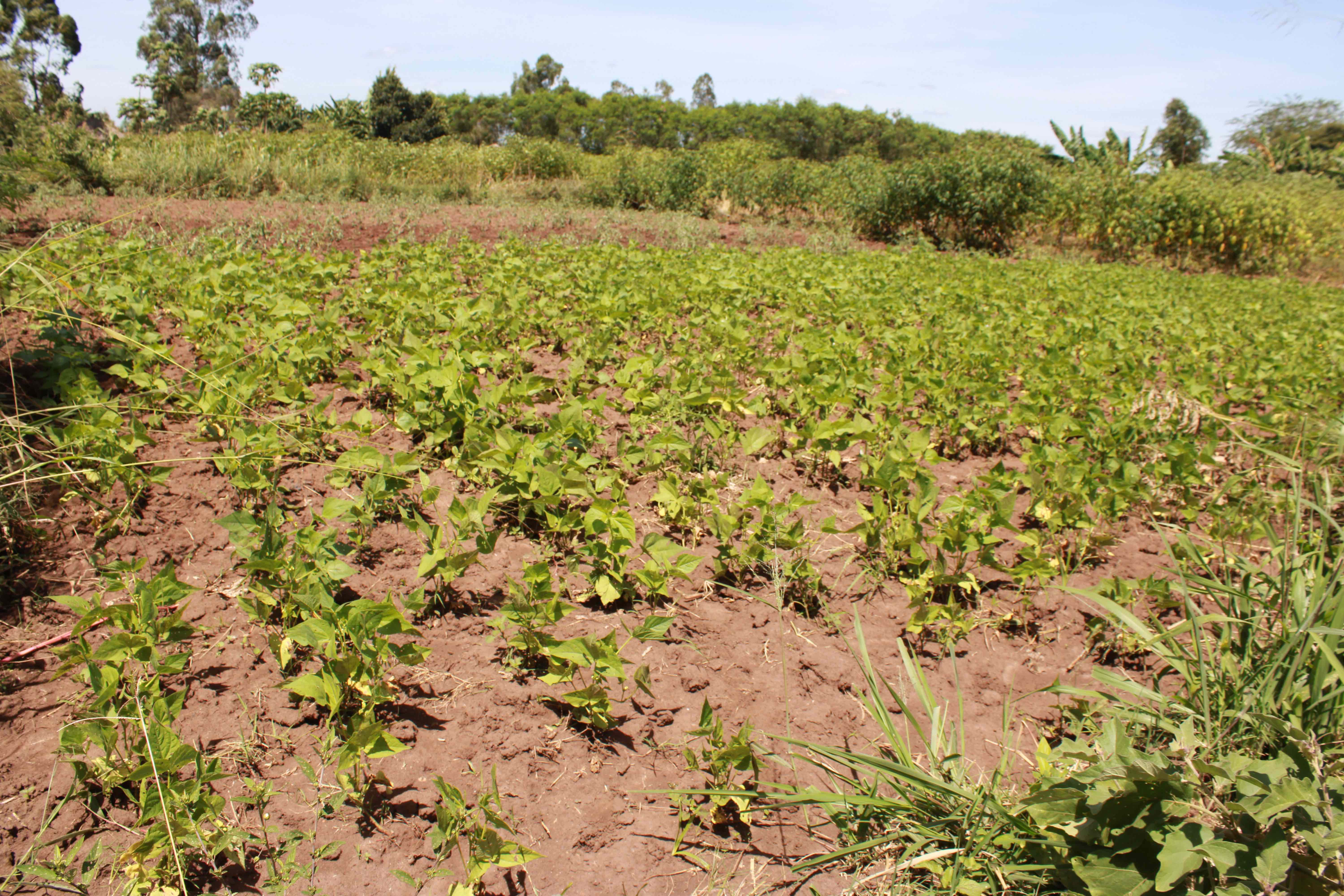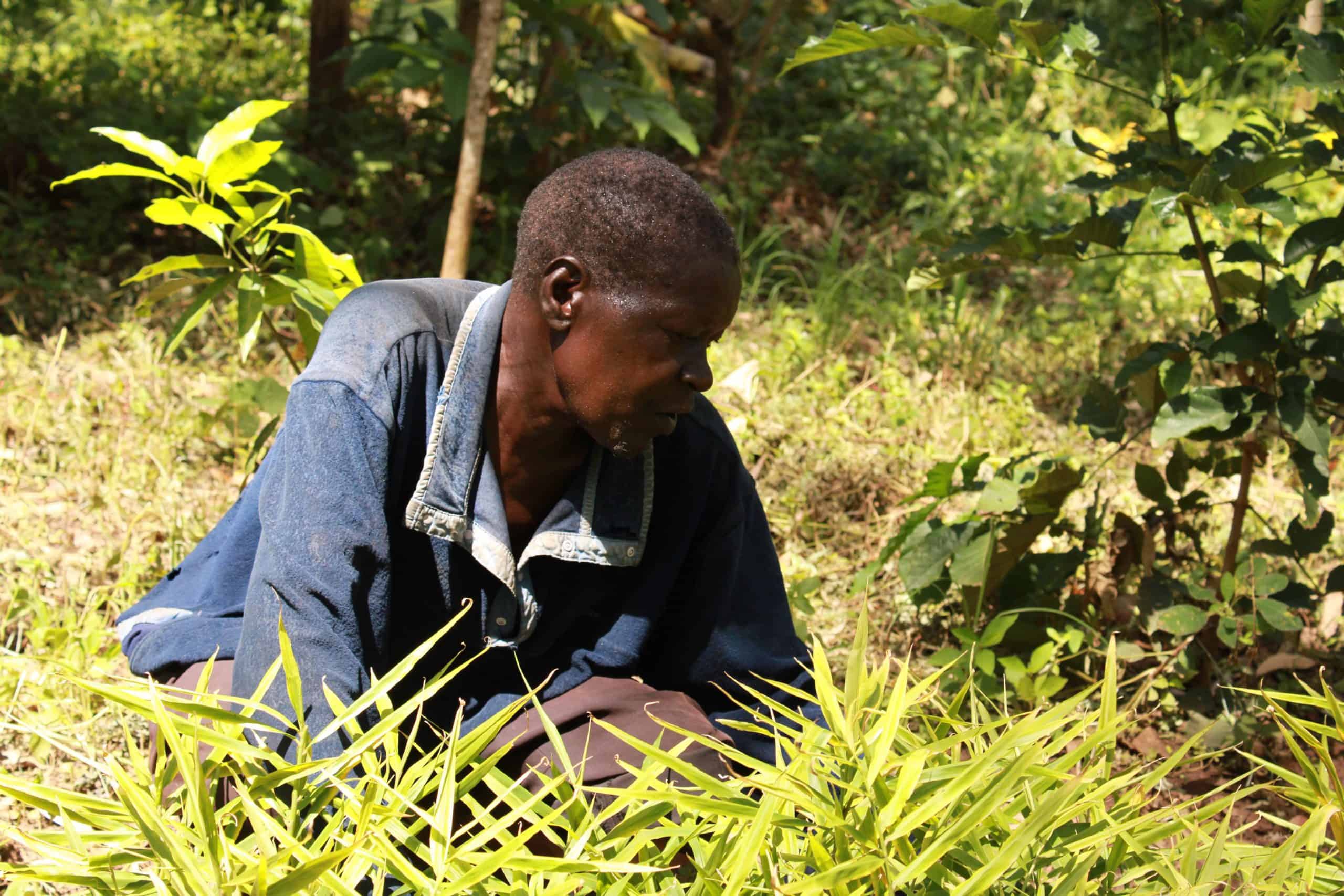Before joining TREES, Francis struggled with feeding his family of seven and most of his children were not going to school because of his low income. His farm was deteriorating with each passing day, and he had started worrying about the future of his home.

In 2016, TREES started work in Lira and Kole, reaching out to farming communities interested in learning about agroforestry and sustainable farming techniques. Francis heard about the organization through his neighbor and decided to give it a try.
Through TREES, Francis was taught the simple Forest Garden Approach of combining trees and food crops to improve the quality of his land and better his life with more income and food. Just one year into the project, Francis had started seeing a change in his harvests. He was harvesting vegetables like tomatoes and cabbages for home consumption and even sold some at the village market.
“I was so impressed with the project because I started taking some of my children back to school by the end of the first year,” Francis remarks. “By the middle of 2018, all my children were back in school and I could see the value of this project.”
Francis’ hard work was paying off and he was happy with his decision to join TREES.
“We have much more food at home now and my Forest Garden has grown so much,” he says.

Towards the end of the four-year project in 2019, Francis’ harvests were getting larger, especially vegetables like soybeans and tomatoes, and he’s able to sell those harvests throughout the year. Many farmers are making less than a dollar a day when they join TREES. In his most recent harvest, he made Ush 120,000 ($32 USD) and Ush 150,000 ($40 USD). Francis uses the money from these regular paydays to buy necessities for his garden, like seeds.
“Francis has been an outstanding farmer in this project and I am proud of him. It is so encouraging to see farmers get to the point of buying their own seeds rather than get them from the projects.” Sharon Obote, Assistant Technician.
Francis is able to invest in more expensive opportunities like livestock – his most recent purchases were three piglets for the farm. He’s also been diligent about saving money.
“I am more than grateful to TREES because when I got sick at the beginning of this year, I was able to pay for my operation in Lacho hospital, Gulu using money from my Forest Garden harvests,” Francis emotionally recalls. “I am much better now and I am even back to work in the garden.”

Francis and 351 other Lira and Kole farmers were set to graduate from the TREES Forest Garden Program in April 2020, but the celebration was postponed due to COVID. While their graduation is delayed, their success as Forest Garden farmers is not. Together, they’ve planted more than a million trees over the last four years and are equipped to maintain their land and grow their income for years to come.
